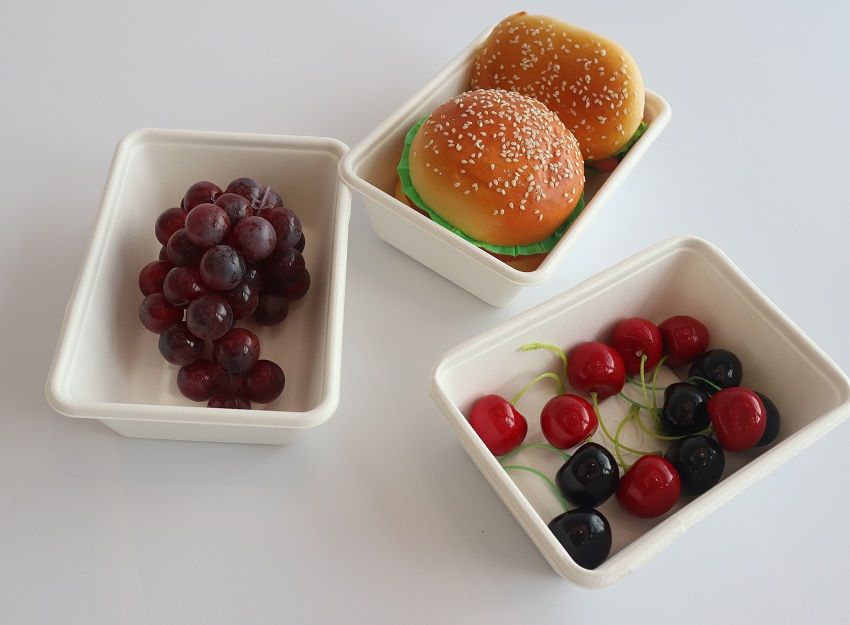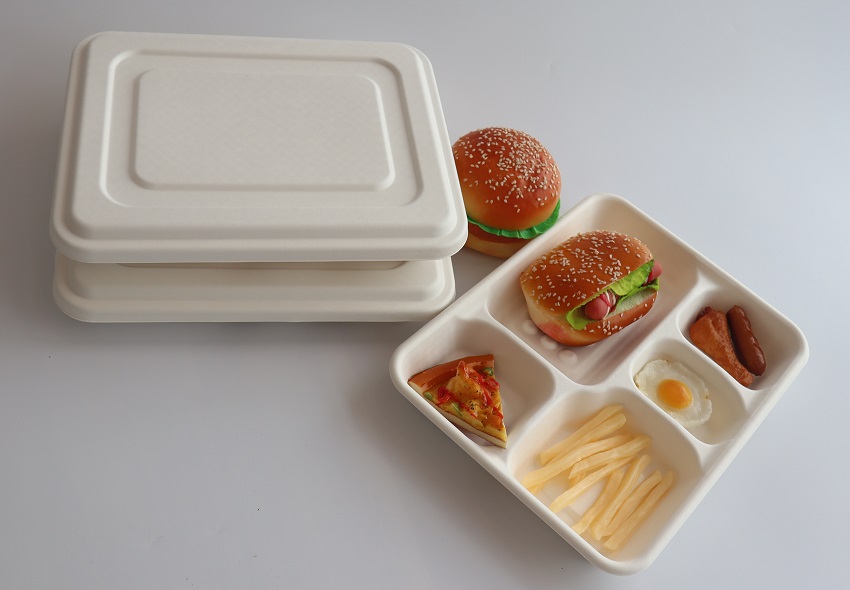pulp moulding industry development profile
The construction of ecological civilization is the basic national policy of China, and it has become a global consensus to ban the use of non-degradable disposable plastics. Building a resource-saving and environment-friendly society is an inevitable demand for the development of human society, and sustainable development and achieving carbon neutrality are also the consensus of most countries around the world.
The development of human society has brought opportunities for the packaging industry to develop and challenges to build a resource-saving, eco-civilised and environment-friendly society. Packaging products are widely used, but have a short life cycle and are usually disposed of once, which not only consumes a lot of resources, but also poses a great threat to the ecological environment. In order to save the dwindling resources of the earth and protect the ecological environment on which human beings depend, it is imperative to develop a green packaging industry.
Paper packaging materials and containers are the most widely used materials in the packaging industry, and one of the main products is the paper pulp moulded products, which are functional products made from plant fibres that are processed into a specific structured shape using a specific mould and decorated to protect and display the contents. Pulp moulded products are made from natural raw materials and the waste can be recycled and degraded after use, making them a typical environmentally friendly green product. The development of pulp moulding

The cone of pulp moulding products, such as the food containers and royal ritual supplies made of earthen paper and purple kneaded and dried, can be traced back to the Eastern Han Dynasty in China. In 1936, the Danes began to use machines to mould pulp moulded products, and in the 1960s, they made a mechanised paper moulding line, with the Danish company Hartmann leading the world in this area. Pulp moulding industry in some developed countries has a history of more than 80 years. 1930s, with people’s increasing awareness of environmental protection and green packaging vigorously promote, many well-known international companies, such as Canada Amélie, France El company, the British Tom into the company, Singapore BORAD WAY company, as well as the United States, Japan, Denmark, some companies have launched a pulp moulding packaging The production line of pulp moulded packaging products has formed a large production scale. Especially in recent years, the international community is paying more and more attention to environmental protection and waste disposal, and many countries have introduced environmental protection measures in the form of legislation. Countries and organisations such as the USA, Canada, Japan and the EU have enacted strict packaging waste restriction laws.

Germany adopted new packaging regulations in 1991, prohibiting the use of packaging products that cannot be recycled and implementing a mandatory administrative white order on the materials used in packaging and the national collection system. The Japanese government also enacted a law on the recycling of resources only in 1991. Organisations and countries such as the European Union and the United States have imposed strict regulations on packaging materials, and in September 1991 the 12 EU countries jointly promulgated the mandatory standard “New Packaging Rules”. It is clearly stipulated that from 1992 onwards, the use of poly-army vinyl foam is banned in transport packaging and town sale packaging, and replaced by pulp moulded packaging products. The development and implementation of these regulations has created favourable conditions for the promotion and application of pulp moulded plastic products. In recent years, the global trend towards sustainability and the implementation of global plastic ban laws and regulations have also accelerated the development of the low-moulding industry,
According to data, annual global plastic production will reach 170 million tons in 2019, and if left unchecked, huge amounts of plastic waste will end up in the oceans, killing marine life and harming ecosystems. A report by The Pew Charitable Trusts and SYSTEMIQ, Breaking the Plastic Tide, suggests that the cumulative amount of plastic in the oceans could reach 600 million tonnes by 2040, more than the total weight of all marine fish. Also. The increase in single-use plastic consumption due to the ongoing epidemic of the new coronavirus marshal clip also poses additional challenges to combat marine plastic pollution.

In July 2020, members of the European Commission agreed to a new EU tax on plastic packaging waste. On 1 October 2020, the UK Secretary of State for Environment, Food and Farming, Geonge Eustice, announced that the UK would introduce a ban on plastic packaging waste in order to protect the environment. The ban on plastic straws, plastic swabs and plastic stirrers was introduced to protect the environment. The ban will see the use of disposable plastic straws, stirrers and swabs banned in the UK and the sale of such items by businesses made illegal. The ban will prevent hospitals, pubs and restaurants from providing plastic straws to people with disabilities who have medical needs. Single-use plastic bags will be doubled from 5p to 10p and extended to all UK retail outlets from April 2021. The German cabinet, in compliance with EU requirements, agrees to end the sale of several categories of plastic products by 3 July 2021, but including disposable cutlery, plates, stir sticks and balloon holders, as well as polystyrene cups and plates. The Netherlands has issued a regulation banning the use of a wide range of single-use plastic products from 3
July 2021, but including plastic dinner plates, cutlery, stirrers and straws. It will also increase the recyclability of plastic products and introduce better reusable alternatives. Most countries around the world, including France, Italy, Iceland, Greece, Portugal, Hungary, Japan, Canada, Indonesia, Bong, South Africa, Cyanya, Rwanda and the United States, have already introduced laws and regulations to ban plastic and restrict plastic, most of which clearly state that the use of single-use plastics will be banned by 2025 to achieve sustainable development.
According to online information, at present, in Europe and some American and African countries, pulp moulding and paper packaging products have largely replaced foamed plastic packaging products and disposable plastic tableware. France, the United States, Japan, Canada, Iceland, the United Kingdom, Denmark, Singapore, the Netherlands, Bong, Malaysia, India and other countries of the paper and purple moulding industry has also had a considerable regulation structure, foreign pulp moulding related enterprises, is out of a pulp moulding industry innovation technology development route, such as Sweden PulPac company launched the world’s first dry moulding fiber ground technology pilot production war, Coca-Cola company and Coca-Cola and Danish start-up Paboco have developed a 100% paper bottle, Denmark’s Hi-Tuber has launched the world’s first “paper bottle beer”, and the paper industry’s leading companies, Vimeo and Finnlin, are also planning to enter the pulp moulding industry, which will bring more new elements to the development of the pulp moulding industry and boost pulp moulding The industry’s technological innovation and market development.

